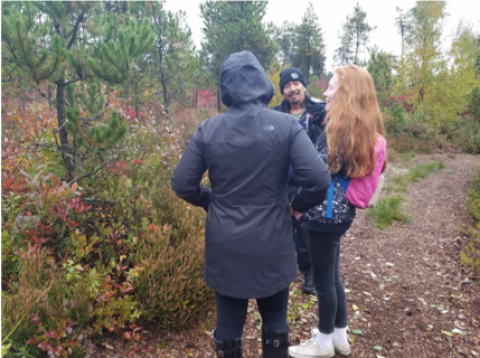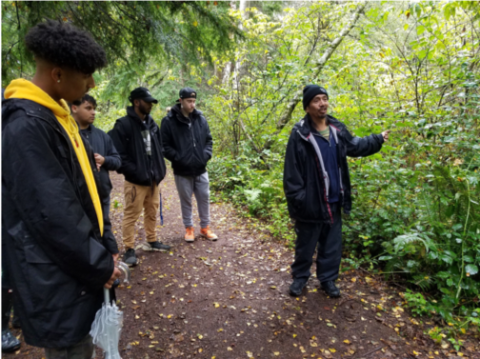Building Connections and Learning in our Community
“My natural inclination was to see relationships, to seek the threads that connect the world, to join instead of divide.” -- Robin Wall Kimmerer
It’s one thing to learn about ecosystems and sustainability in the classroom, but it’s a completely different experience to wander and wonder through the forest, learning experientially from the land. This year, Integrated Academics has sought to bring our learning outside the classroom and into the environment in order to build connections with the natural world as well as a stronger sense of community.
In our Environmental Science 11/12 class, the Integrated Academics program has been exploring native plants and how they have traditionally been utilized by the Coast Salish peoples as well as looking at indigenous approaches to healthy ecosystems. We have also been exploring Robin Wall Kimmerer’s unique perspectives in her book, Braiding Sweetgrass, and discussing the differences and similarities between Traditional Ecological Knowledge and western science. Our most recent unit of study on ecosystems culminated in a field trip to the Richmond Nature Park led by Richard and Wes of Talaysay Tours, an organization offering authentic Aboriginal cultural and eco-tourism experiences.
Despite the incessant rain and chilly weather, students eagerly participated and engaged in our very own customized tour of the Richmond Nature Park’s unique Peatland Bog ecosystem and the wonderful plants that grow there. Richard and Wes spoke of each plant’s role in the ecosystem and our responsibility to harvest sustainably and protect our environment.
Students were particularly interested in the myriad of different uses for many common plant species growing in Richmond. For example, the broadleaf plantain can be used to treat cuts and injuries. Wes also pointed out Salal plants and described how the berries of this plant would be harvested as an important food source. Certain types of moss could be used as fire starters, a method of refrigeration and even in diapers.
After returning to our classroom, students reflected upon this unique learning experience. Students reported finding the experience valuable because they were able to learn about different cultures and were exposed to new perspectives. They also enjoyed learning about indigenous plants and their uses while out in nature. Some students even expressed disbelief that we could be so immersed in nature and still be in Richmond!
We are incredibly grateful to Talaysay Tours and to Wes and Richard for sharing their wealth of knowledge with our class and deepening our connection to this place where we work, live and study.

